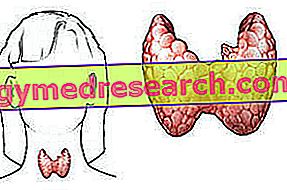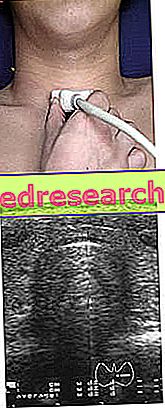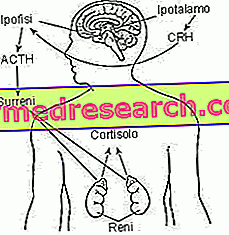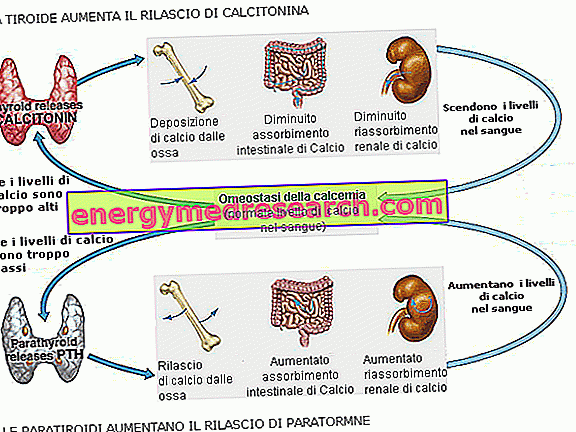Generality Thyroiditis is a chronic inflammatory process affecting the thyroid; there are different forms, the most common of which, we will deal with in this article, is Hashimoto's thyroiditis . In this disease the butterfly-shaped gland located in the anterior region of the neck - which is precisely the thyroid - is damaged by abnormal antibodies
Category endocrinology
Generality Thyroid antibodies are components of the immune system mistakenly directed against the thyroid gland or against some fundamental factors for its normal functionality. This can result in very serious pathological consequences, such as chronic inflammation (thyroiditis), tissue damage or gland dysfunction
Thyroid ultrasound is the reference diagnostic test for the morphological study of this gland. How does it work Like all ultrasound techniques, it is based on the different ability of the tissues to reflect the ultrasound emitted by an electric probe; the same device is able to record the intensity of the reflected waves, converting them into electrical signals and reconstructing the anatomical aspect of the thyroid in real time (thanks to a specific computer program)
What is pheochromocytoma Pheochromicitoma is a tumor that develops in the adrenal gland, generally affecting its innermost portion, called medulla, where chromaffin cells are found. It is a rather rare neoplasm, with an estimated incidence between 2 and 8 cases per million inhabitants; pheochromocytoma recognizes a certain family predisposition and is more common among young adults and in middle age groups
See also: Acromegaly Generality Gigantism is the exaggerated statural growth of an individual compared to the reference population. Growth percentages Robert Wadlow, 2 meters and 72 cm, next to his father, shows us the effects of a hyper-secretion of GH during development. André René Roussimoff, 224 cm for 230 kg of weight, famous professional wrestler and actor of the 80s.
Generality The term goiter, or struma, indicates the increase in volume and weight of the thyroid, a small butterfly-shaped gland located just below the Adam's apple. It manifests itself with a more or less evident and symmetrical bulge of the neck, and can recognize different causes, just as the repercussions of the goiter on the health of the individual are different; in fact, the hormones produced by the thyroid regulate every aspect of the body's metabolism, such as the heart rate, temperature and speed of use of carbohydrates and lipids for energy purposes
Generality Adrenal insufficiency is a condition in which the endocrine activity of the adrenal glands appears to be severely impaired, to the point of being insufficient with respect to the body's needs. The concentration of cortisol is normally regulated by the pituitary and hypothalamus. The latter sends the hormone CRH to the pituitary gland and the gland responds by producing one of its hormones which is ACTH; this hormone stimulates the adrenal glands to produce cortisol; in turn the cortisol concentration participates in the regulation of the ACTH concentration
Indications The indications for treatment with radioactive iodine are essentially represented by hyperthyroidism and thyroid neoplasms [(the therapy allows the elimination of any metastases and residual thyroid tissues after surgery (ablation)]. Patients must however present suitable characteristics, on which the therapeutic efficacy of the treatment depends
Causes Increases in prolactin levels (hyperprolactinemia) may occur: For physiological reasons: pregnancy, puerperium, stress, exercise, sleep, protein-rich meals, breastfeeding, sexual activity; For the use of some drugs : tricyclic antidepressants, antiepileptics, antihypertensives, antiemetics (against nausea and vomiting), antihistamines, cocaine, sometimes birth control pills, metoclopramide-sulpiride, veralipride; Unknown causes ( idiopathic ); Pathological causes: adenoma of the pituitary gland (benign tumor secreting prolactin, also called prolactinoma), non-secreting pituitary adenomas
Generality Hyperparathyroidism is a clinical condition related to excessive parathyroid hormone synthesis and secretion. It therefore involves the parathyroids, four small glands located two by two on the dorsal aspect of the thyroid, similar to lentils and deputed to the synthesis of parathormone (PTH) and to its release in the blood; in turn, this protein hormone has a hypercalcemizing effect, increasing the mobilization of calcium from the bones, stimulating intestinal absorption (mediated by vitamin D) and decreasing urinary excretion
Therapy The normalization of plasma prolactin levels must be proposed. In some cases this objective can be easily achieved, for example in hypothyroidism, with an appropriate substitution treatment with thyroid hormones and, in the forms of hyperprolactinemia due to the use of drugs, interrupting their administration










